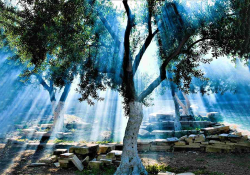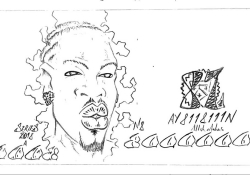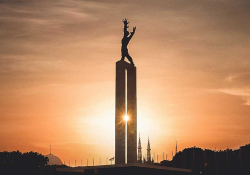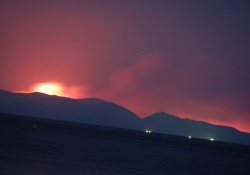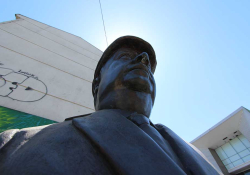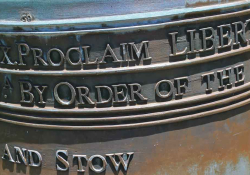Two Poems for My Father
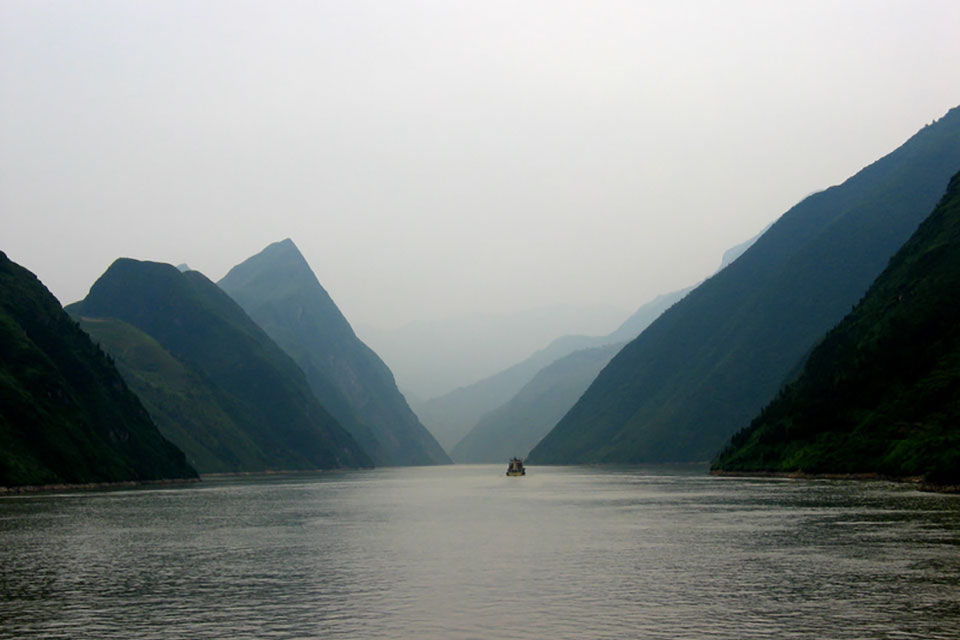
Summer Elegy
for my father
From June to June, as though uninterrupted,
I was born and orphaned.
My first memory was water: you, mother
and me in a bathtub that seemed to be a river.
From river to river, as though uncut by land,
I’ve swum six thousand miles
just to see the world, my eyes always yours.
First I swam with you in the Yangtze, at age three,
mother watching us under a green sun umbrella
on the riverbank, the Wuhan Bund.
Wind blew around me, and I caught fish
in my little seersucker shirt, but they
jumped out to catch wind. From wind to wind
that moved like waves, from waves to waves
I grew up—I grew up on river tides.
From tide to tide we flew down the Yangtze
to Turtle Island
as if the Pacific Ocean was just a canal.
Who would have thought that you’d stop here
in Los Angeles. It’s only halfway to the moon.
From sky to sky, your face, my mother’s face,
faces of summer stars.
From star to star in the spiral galaxy that
mother went first, isn’t she the longest milky way
you’d ever run across and through?
You, a cowboy from the Three Gorges
by the Yangtze, is there a shortcut for you?
I want to be your daughter again in the next cycle
of life. Show me a way to find the planet
where you’ll meet my mother—
I want to be born again, too old to be an orphan.
I want to hold your hands,
but you slipped away like a breeze
of air. From air to air I’ve looked for you.
From mountain to mountain, stream to stream,
my grief has formed a new age of glaciers.
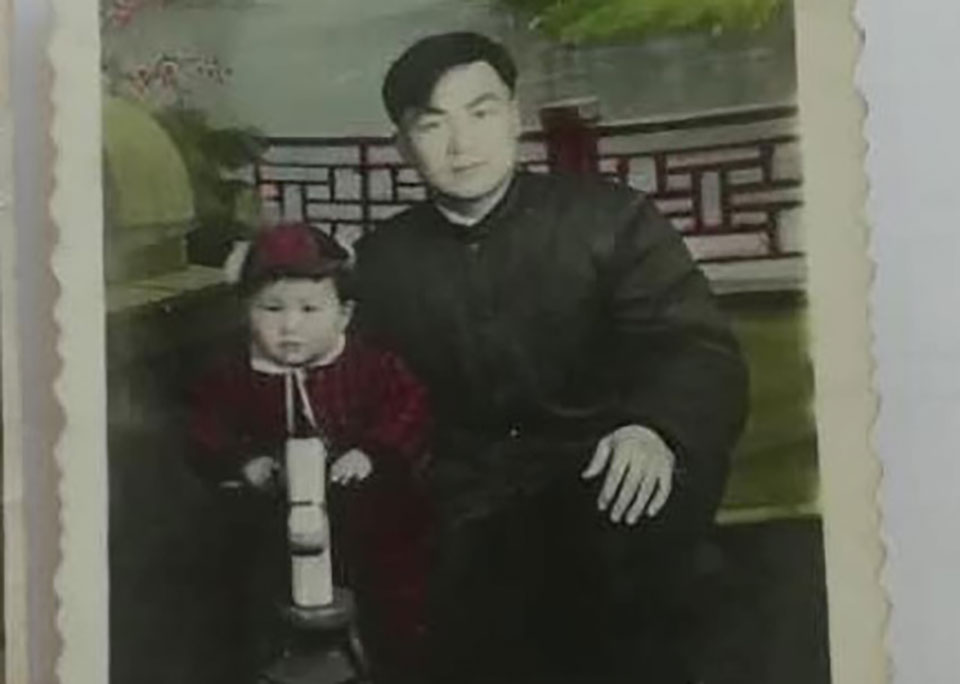
Winged Dinosaurs, Dragons, and My Father
Those dinosaurs had feathers.
They were about to fly when a volcano erupted—
they were buried in lava instantly
until the ocean bed rose, their fossils discovered.
Birds die in becoming birds.
They die suddenly in their dreams like dinosaurs,
or keep flying in our dreams like dragons.
My father fell into a coma one night.
There must have been a volcano or tsunami
inside his brain. He breathed with all his heart,
then calmed—he traveled nine days in his mind
while I held his hands day and night.
He breathed like a slow tide—on his skin
small waves of receding bruises, his flesh and soul suddenly
soaring into the dark night.
It was the first hour of June 25, Dragon Boat Festival
in China. Across the ocean,
people beat drums, throwing rice tamales into rivers
from their dragon-shaped boats, lantern-lit,
for Qu Yuan, on May 5th
of the Lunar Calendar, each year and this year.
I stared into the darkness that night and every night
tracing my father’s flight.
Did he die for Wuhan where the coronavirus was
spreading to the whole world?
Did he die for the Three Gorges Dam and the flood
flooding the cities and villages along the Yangtze?
He lived nine more days for the dragons to appear?
Nine days, Nine Songs of Qu Yuan, nine-headed birds
of Hubei, the land of dinosaurs and crocodiles.
Qu Yuan drowned himself, ascending to the sky
like a dragon or dinosaur from the river, flaming.
He died to save the Chu Kingdom.
My father was drowned in chemo fluids,
too humble to die for a country. He died for Wuhan
where he met my mother on the Yellow Crane Tower.
He died for the Three Gorges where his hometown,
Sandouping, Three Star Slope, was submerged in the river.
A man who has lost his hometown has to fly up—
above the nine tiers of clouds, with the aroma of calamus,
mugwort, and clove leaves around and around.
All that has life has a long one in the ocean,
a brief one on land
and an eternal one in the sky.
My father travels from star to star, searching
for my mother who stands by an osmanthus tree
with long sleeves, her old wings.
* Qu Yuan (ca. 339–278 BCE), the first recorded poet in China, was born in Zigui, adjacent to my father’s hometown of Sandouping, both in Yichang, Hubei province. While Qu Yuan’s temple was relocated to the new Zigui town, all of Sandouping and part of the old Zigui were submerged by the lake created by the Three Gorges Dam.


